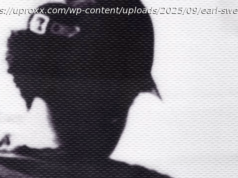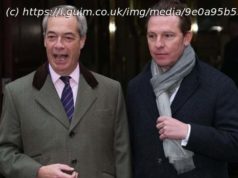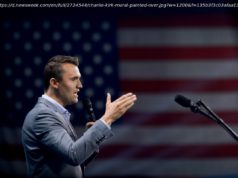Read about how the other side thinks: Writers from across the political spectrum consider the consequences of James B. Comey’s memo on his meetings with President Trump.
The political news cycle is fast, and keeping up can be overwhelming. Trying to find differing perspectives worth your time is even harder. That’s why we have scoured the internet for political writing from the right and left that you might not have seen.
Has this series exposed you to new ideas?
Tell us how. Email us at ourpicks@nytimes.com .
• Joel B. Pollak in Breitbart:
“This dagger is a rather dull blade. It lacks any apparent ‘quid pro quo’ — a sense that Trump was offering something to Comey in exchange for dropping the investigation.”
Joel B. Pollak believes that The New York Times “oversells” the consequences of the Comey memo, taking issue with The Times’s interpretation of the word “hope” to mean a request. If the president told James B. Comey, “I hope you can let this go, ” Mr. Pollak sees no reason to read this as an effort to interfere with the investigation. “That is a rather liberal (pun intended) spin on Trump’s words.” Read more »
_____
• Guy Benson in Townhall:
“The Times’ track record of bias obviously merits skepticism. However, this particular reporting was done by a tough young journalist who also broke the Clinton email server story.”
Guy Benson offers a quick reaction to the news, writing, “as someone who frequently cautions against hair-on-fire freakouts, I’ ll just say that this one smells like it has the potential to metastasize.” Read more »
_____
• David French in National Review:
“There is no good outcome here. Either there is now compelling evidence that the president committed a serious abuse of power, or the nation’s leading press outlets are dupes for a vindictive, misleading story. ”
For David French, the analysis is “simple”: Either the Comey memo is a credible and admissible piece of evidence in what would turn out to be an impeachable offense, or The Times printed “malicious fiction.” The only way to resolve this question, according to him, is for Congress to subpoena the memo and allow the American people to see it for themselves. Read more »
_____
• Editorial board in The New York Post:
“The president needs to get a handle on his words — on his public communications, online and on-air, and on even his private comments.”
The editorial board of The New York Post describes President Trump’s latest troubles as a function of poor communication (both public and private) and “ham-handed presidential actions.” It warns that these unforced errors might imperil the president’s agenda and his “very presidency.” Read more »
_____
• J. D. Tuccille in Reason:
“Has Donald Trump been sent among us to demonstrate the foolishness of placing cultlike faith in the presidency?”
Writing for the libertarian magazine Reason, J. D. Tuccille puts a positive gloss on the failures of the president. Before news of the Comey memo broke, Mr. Tuccille wrote about the impossible expectations American voters have for the presidency. While he concedes that President Trump’s flaws are “readily apparent, ” he also believes that the president is “the right guy to deprogram our country’s presidential cultists.” Perhaps only Mr. Trump can return the office to its “limited and defined power.” Read more »
_____
• Philip Bump in The Washington Post:
“We’ ve seen repeatedly that in a believability contest between Trump and A Number of Other People, Trump often, somehow, emerges the victor.”
During the campaign, Philip Bump reminds his readers, President Trump came out unscathed in battles with “imperfect foils like Ted Cruz or Hillary Clinton or the mainstream media.” And while it’s still unclear whether the revelations in the Comey memo will be enough to chip away at his base of supporters, Mr. Bump predicts that the president is on a collision course with an “undeniable truth.” Read more »
_____
• Will Oremus in Slate:
“It can’ t really shock anyone, at this point, to learn that Trump apparently tried to use the F. B. I. to muzzle the press. But it should scare people nonetheless.”
Will Oremus draws attention to a smaller, but still significant, discovery from the Comey memo: The president asked Mr. Comey to prosecute journalists who published classified information. Those who doubted the sincerity of the president’s vow to “open up the libel laws, ” Mr. Oremus argues, should now see just how serious he was about curtailing press freedoms. Read more »
_____
• Jonathan Chait in New York Magazine:
“Just as no conclusive proof ever found that Nixon ordered the break-in of Democratic headquarters during the 1972 election, there is not yet any clear proof that Trump’s campaign colluded with Russia’s electronic break-in to Democratic electronic records during the 2016 election. The attempted manipulation of justice is, in both cases, the more serious crime.”
Many columnists have compared our current political moment to that of Watergate. Here, Jonathan Chait contends that the Comey memo is equivalent to the “smoking gun tape” that eventually brought down President Richard Nixon. The only path forward, Mr. Chait writes, is impeachment. Read more »
_____
• Jeff Alson in In These Times:
“It would be a major strategic blunder for the Democratic Party to fall for what I call the Impeachment Trap — the powerful temptation to lead the charge for impeachment without considering the strategic implications.”
Although this piece by Jeff Alson was published before news of Comey memo, its argument — against impeaching the president — is still relevant. Vice President Mike Pence, Mr. Alson writes, “would be a much more reliable and competent rubber stamp for the conservative policy agenda.” For all the left’s distaste for President Trump, his impeachment would signify significant strategic problems for progressives. Read more »
_____
• David Faris in The Week:
“Rather than protecting him from the consequences of every indecency, crime, and provocation, the smarter play for Republicans would be to begin the process of removing the president from office immediately.”
For a full-throated argument for the president’s impeachment, including strategic political calculations for Democrats and progressives, read this piece by David Faris. Read more »
_____
• Helen Klein Murillo, Jack Goldsmith, Susan Hennessey, Quinta Jurecic, Matthew Kahn, Paul Rosenzweig, Benjamin Wittes in Lawfare:
“The immediate question is not whether this pattern of behavior — or any individual component of it — could support a prosecution and criminal conviction for obstruction of justice. It’s whether it would support an impeachment in the House and a removal vote in the Senate.”
The Lawfare blog has become a reliable, centrist source of quick but thorough reactions and analysis for the news out of the White House. Here, its writers take you through some preliminary questions about the legality of impeachment and criminal prosecution.






